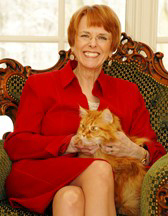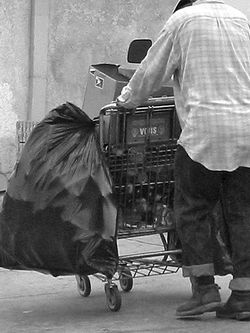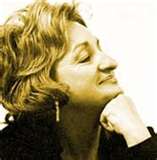| VIRGINIA SMITH WATKINS FOUNDER DES MOINES NOW, EARLY LEADER MINNESOTA NOW, NATIONAL NOW BOARD MEMBER, VFA'S BOARD SECRETARY
Once my younger brother Stanley and I were in school, my mother became interested in possible employment in county human services, but my dad dissuaded her because he didn't know what he would do without her bookkeeping skills. I am sorry she didn't have much career fulfillment, but fortunately that was his only foray into sexism.
Both my parents were at some time or other president of every organization they belonged to, therefore it was a natural for me to become a leader within NOW. They both agreed with the new and controversial issues of feminism, particularly the ERA and abortion rights, and pretty much treated my brother and me equally. They were very active in the United Methodist Church, which was a building block of my feminist attitudes as a child, when our local church had a woman pastor in the 1950's. Fast forward 20 years. My mother, whose church leadership went beyond the local, returned from a United Methodist Women convention wearing an ERA button. I definitely had feminist thoughts as a child, mostly centering around women being more involved in business and having a greater public life. I owned at least a dozen dolls I seldom played with; I preferred my stamp collection. As a teenager, I was quite aware of what I would now call sexist attitudes that some, not all, boys had against girls. That awareness led me to make a good, albeit early by today's standards, choice of husband: David Watkins, who grew up in a neighboring town and worked most of his career for a medical supply company. I had grown up with a feeling of entitlement. As a freshman at Drake University I was appalled by dorm hours (10:30 weeknights for girls, none for boys). Though I liked the friends I met, dorm life back then was pretty stultifying, so I was quite happy with my early marriage to Dave in 1959. I felt more adult and independent. Our first night cooking in our apartment, I started to clean up the dishes after dinner. "Sit down and talk to me," Dave said, "I'll help you later with the dishes." He has more than shared all housework and childcare ever since.
The subsequent births of our two children occurred before I achieved my degree. Dave and I decided we needed him to complete his degree first (as we understood that men could get far better jobs) and I would work as a caseworker for parents on Aid to Families with Dependant Children in order to support our beginning family (it was possible at the time with two years of college). The radicalization process clicked in there as I compared my temporary financial situation with the pervasive poverty of my clients. When I became pregnant with our second child, my feeling of entitlement prevented me from realizing I wouldn't be granted what I envisioned as a maternity leave. What happened was even more shocking than that. The agency director, an unmarried man, took it upon himself to presume my stage of pregnancy and terminate me a full three months before I was due! (My immediate supervisor, a black woman, fought for me.) Even my part-time endeavors to stick with college had interruptions, which to my good fortune had me still a student during the late 1960's. It was a heady time. I became involved in civil rights and peace movements and finally became part of a consciousness-raising group that included students, professor's wives and staff. Also, in 1967 I became a national member of NOW. 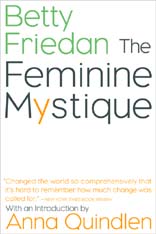 What I still didn't see before graduating was the need for more specified educational opportunity and career counseling. These were pretty much outside women's vision at the time--I couldn't have dreamed of all the possibilities that would open up. Betty Friedan's "The Feminine Mystique" guided me to conceptualize these fragmented thoughts about women that were swirling in my mind and soul. That propelled me to found the Des Moines chapter of NOW in 1970 and serve as its first president. But soon I moved with my family to Minneapolis, where I immediately became involved in NOW and also with organizing the Minnesota Women's Political Caucus. I served as president of Twin Cities NOW for three years, State Coordinator (president) of Minnesota NOW for two years, then six years on the NOW National Board, five of which I was Midwest Regional Director. During the earlier part of my feminist career, I focused on organizing. That meant personally recruiting members and aiding in the formation of new chapters throughout the state of Minnesota, which would then recruit more people into NOW. I also worked a lot on structural organizing and decision-making processes. I felt a real mission to fill the nation's heartland with organized feminists ready to develop power relationships with business and legislative bodies so we could strengthen the Movement nationwide. 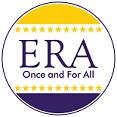 I put much personal effort into many feminist issues, particularly reproductive rights, the ERA, and childcare. My lobbying efforts secured passage of the first Child Care Sliding Fee legislation in Minnesota. I also have published feminist writing, among them such articles as "Can Moral Values Go Too Far?" (about pro-choice abortion) in Engage, a magazine of the United Methodist Church social concerns division; "Diagnosis Drives Women Crazy" New Directions for Women (Englewood, New Jersey) XVI No. 5 (1987). The issue of psychiatric labeling of women stirred a controversy within the psychiatric community when in 1986, the American Psychiatric Association began considering a diagnostic category which would involve emotional trauma preceding the menstrual period. The diagnosis, Late Luteral Phase Disorder, involved feelings of irritability or anger, tension or feelings of depression, feeling "on edge", and self-deprecating thoughts, as well as decreased interest in usual activities, fatigue and loss of energy, sense of difficulty concentrating and sleep disturbance. In addition to several more feminist articles, I have published articles on travel, home decorating, and the settlement of Hmong immigrants (an Asian ethnic group from the mountainous regions of China, Vietnam, Laos, and Thailand) in St. Paul. Finally at age 40, employed part time as a community organizer in childcare, I realized I had to devote my time to my own career; I had no more time for devoting as much time to an avocation as paid work. I had to live what I had sought for women. I held the positions of lobbyist and executive director for Minnesota Social Service Association and went through a travel phase that absorbed much of my spare time.
The travel phase led me eventually to retire from social services and take up a travel career in customer relations with an affiliate of Northwest Airlines. In 2000 at age 60, I traveled to a Feminist Majority event in Baltimore, and there I became acquainted with Veteran Feminists of America. I became VFA's secretary, and worked with Barbara Love on "Feminists Who Changed America". Some time after the death of Betty Friedan, I became interested in memorializing her in a way that would be widely visible and permanent, such as statues and street names. The VFA Board authorized the Betty Friedan Permanent Memorial Committee, and I was appointed chair. An effort toward a U.S. postage stamp is in progress--our proposal was accepted for consideration by the Citizens' Stamp Advisory Committee of the USPS and we should learn in about a year about the outcome of a Betty Friedan stamp. No, I don't get out in the winter tundra of Minnesota to go to feminist meetings anymore. I go to some Planned Parenthood fundraisers and feminist candidate events. I also work two part-time jobs that provide intellectual fulfillment and help fill our post-retirement coffers. That is important because of my preoccupation with the feminist movement, which earlier led to partial neglect of earning. I'm proud and happy that I chose volunteer feminism. I feel fortunate to have been so immersed in such an historic movement, and I am content with our cyberspace technology that allows me to work with VFA from the comfort of my home. My children, Kyle and Rhonda Watkins, are now middle aged and have brought me five grandchildren. Kyle and his wife Kathryn Hammond are both partners in their respective companies. Kathryn frequently tells me how much she appreciates our early work, as it has opened many doors for her. Daughter Rhonda, who has her own business as a prop stylist, feels the same way. She is married to Nik Wogstad. There is more information on my family on VFA's website under Mothers, Daughters, Granddaughters. (http://vfa.us/MOTHERSDAUGHTERSGRANDDAUGHTERS.htm) In addition to feminism, I have a passion for classical music and play the piano. As a traveler, I have visited all 50 states and all seven continents. I am a provisional member of Travelers' Century Club as 100 countries is the full membership requirement. With about 94 achieved, I hope to make 100. Elder role models in VFA inspire me to keep living life big! Contact Virginia Watkins: VIRGINIASWATKINS@aol.com Comments to: Jacqui Ceballos jcvfa@aol.com Back to the Fabulous Feminists of the VFA Table of Contents |
%202009%20002%5B1%5D.jpg)
